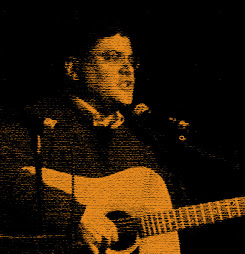
All a Twitter? Not So Fast.
When it comes to computers, the “new thing” is, by definition, smaller, faster, and cheaper. “Moore’s Law” defines how much so: the power of microprocessor technology doubles and the costs of production fall in half every 18 months. Hence, a powerful computer that once filled ten thousand square feet of office space can now comfortably reside in your wristwatch. Plus, now you can afford it!
The economies provided by “Moore’s Law” also changed the world of communication, as slow, inefficient modalities like written correspondence have given way to cheap and fast email, texting, and FaceBook entries. Yet, faster and cheaper doesn’t always yield “better.” Once upon a time, taking pen to paper presumed sufficient inspiration to engage in the relatively inefficient act of correspondence. Today, it’s infinitely easier to connect, but do we really have that much more to say?
Enter the latest conveyor of atomized information: Twitter. Twitter is a way to stay in touch with all of your “peeps” (people, in the current lingo) through the timely uploading of messages called “tweets” of up to 140 characters. The necessity for such brevity, coupled with the human desire to be “in touch” leads to some amusing examples from the Twitter world. “Back from Belgium,” Representative Darrell Issa of California tweeted last month. “They make quite a waffle.” Claire McCaskill, the junior senator from Missouri, tweeting non-stop since the inauguration, wrote: “I get old style crunchy taco, and a chicken burrito supreme & Diet Coke at Taco Bell... Miss those tostados.” Then: “Ok, ok, brain freeze. I know you can only get Diet Pepsi at Taco Bell.” (from the New York Times, April 19, 2009).
To be fair, McCaskill and other politicians do use Twitter for more conventional political purposes, say, like sharing their views on upcoming legislation. Yet, much of what passes for conversation on Twitter is banal, pseudo-intimate details of someone’s life. A year ago, this was new and fun. Today, the “ambient awareness”, as Virginia Heffernan coins it, promoted by Twitter, has transformed into something darker, perhaps because the world is a darker place given the economic downturn. She writes: “Where once it was “hypnotic” and “mesmerizing” to read about a friend’s fever or a cousin’s job complaints, today the same kind of posts, and from broader and broader audiences, seem . . . threatening. Encroaching. Suffocating.”
While Twitter is an uber-efficient way to share and amplify the national zeitgeist, it now appears that technology can enslave, not just liberate. As writer Bruce Sterling put it when speaking recently at the tech conference “South by Southwest”, the clearest symbol of poverty is dependence on “connections” like the Internet, Skype and texting. “Poor folk love their cellphones!” he said.
He didn’t intend to insult the poor; he meant that the clearest sign of wealth and prosperity is the desire and capability to “turn off” those devices (and their ringers!) and instead to enjoy some peace and quiet alone or with friends, or with a book or a walk in the woods, things you can put in your hand and which can’t be digitized and transmitted instantaneously across the world. Rather than feeling more “connected”, we end up craving the quiet and privacy we thought we were trying to escape. Only the most affluent can afford to abandon the technological umbilicus and hire personal assistants to continue to compose the stream of “tweets” emanating into the ether. The rest of us are looking for ways to escape the ever-beeping Twitter. As one of the more underprivileged “Twitterati” recently wrote: “I wish I didn’t feel the need to write pointless things here.” And interestingly, “I wish I was rich and had personal assistants.” What for? To sit and post “tweets” on his behalf so he could be rid of them. Ironic? Indeed. But pardon me; I am off to go buy a new book. After I check my email. And maybe Facebook.
Rabbi David B. Cohen


1 comment:
Like any tool of technology, it is a tool, and as such, it can be put to good uses or bad. The user and the use define the benefit. Today, we don't condemn traditional forms of media such as film, even though that medium has historically been used by dictators, despots and politicians to form false impressions and motivate evil behavior. We continue to go to the movies and we watch the second generation - TV no less and significantly more than when these items of technology appeared on the scene. And, the benefits that we have found from these "old" technologies over time have improved our lives - whether we trust the weather man or not, we still watch him, unless one has signed up to get the local weather twitters. We obtain vast amounts of information from the multiple news outlets, along with contrasting opinions and points of view. The key, as with all new technology, is to find ways to make certain that it is used improve our lives and better develop the human spirit.
Post a Comment